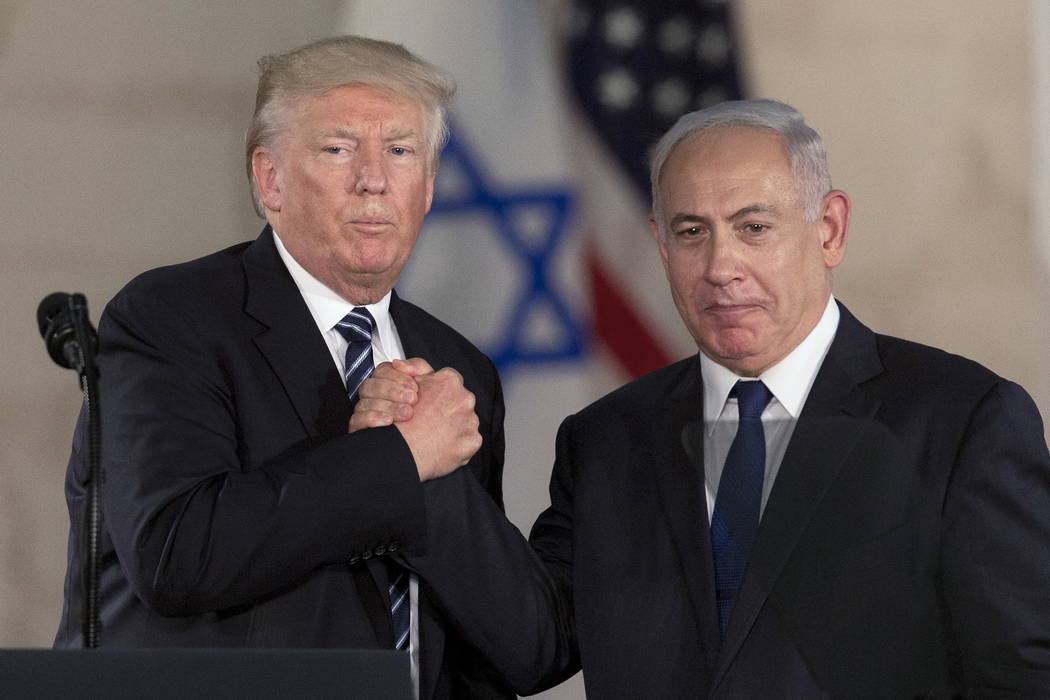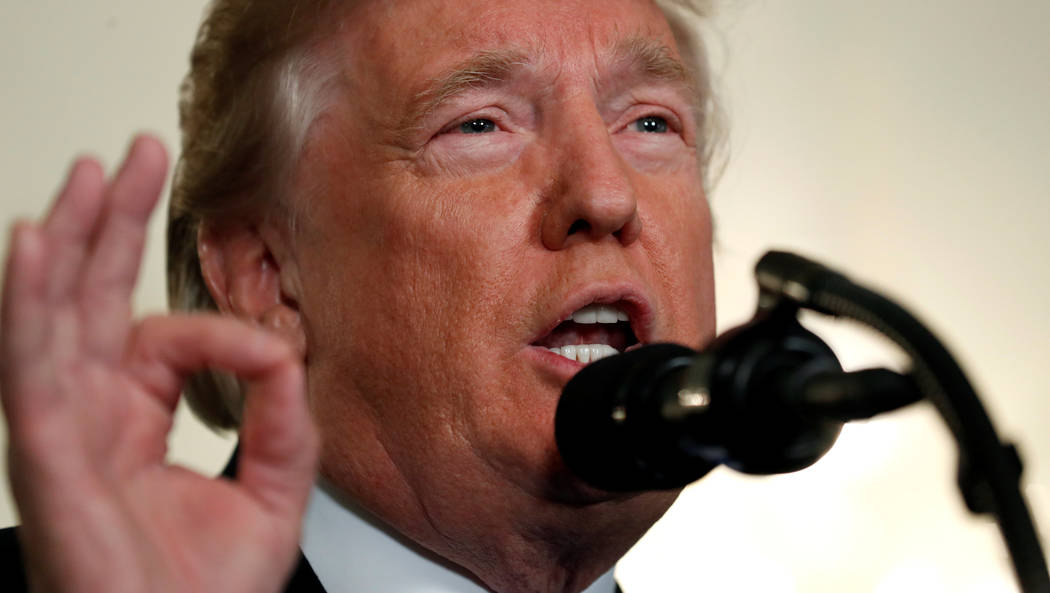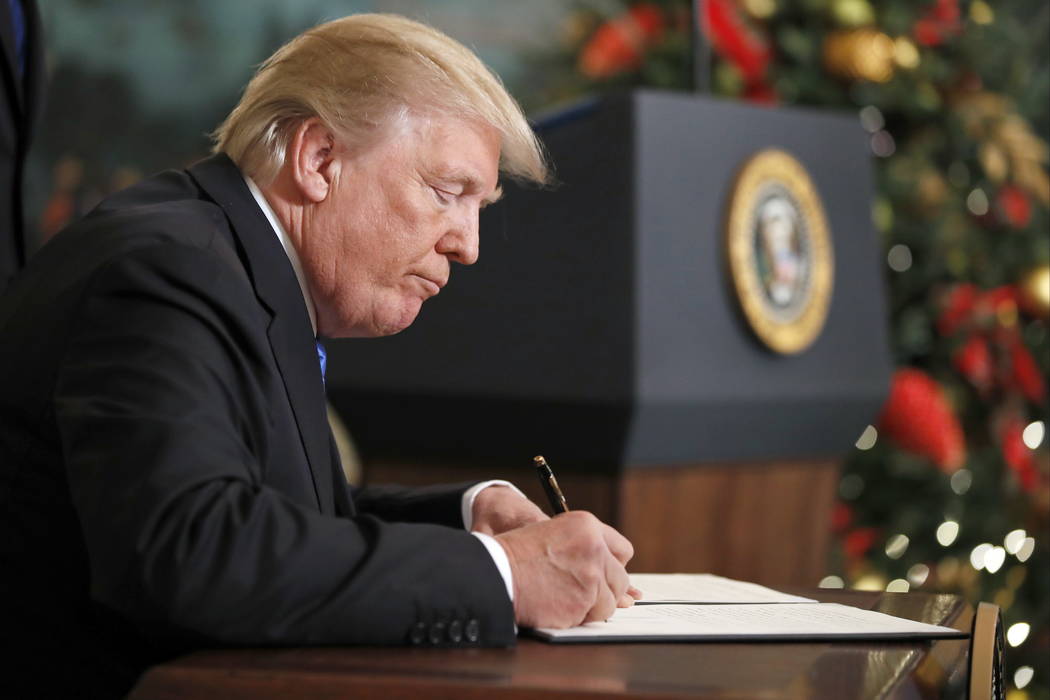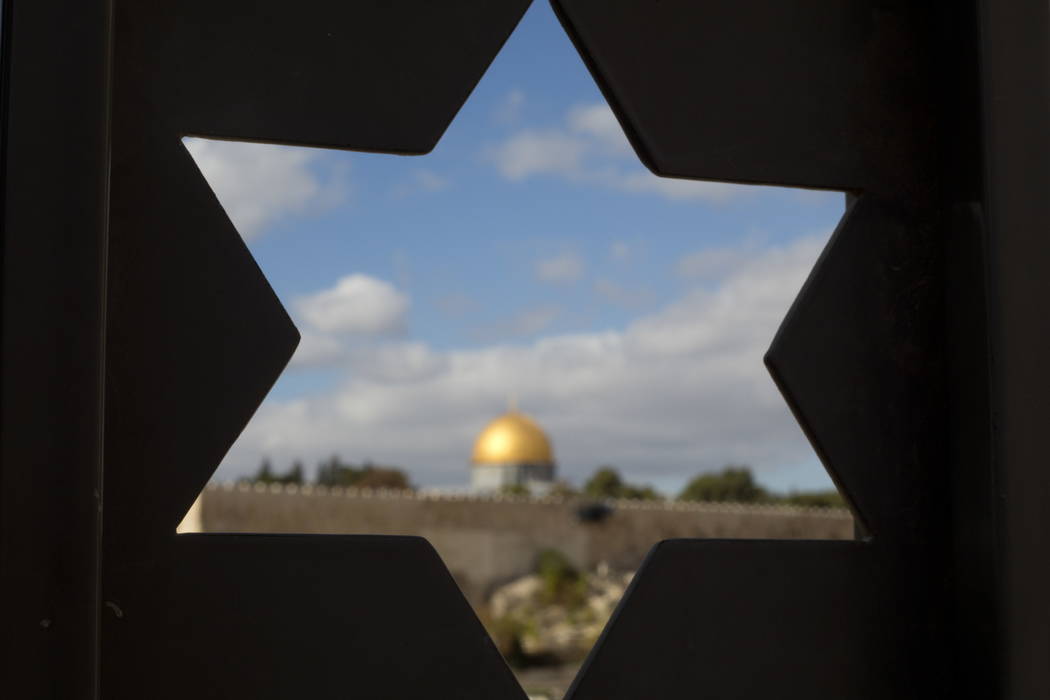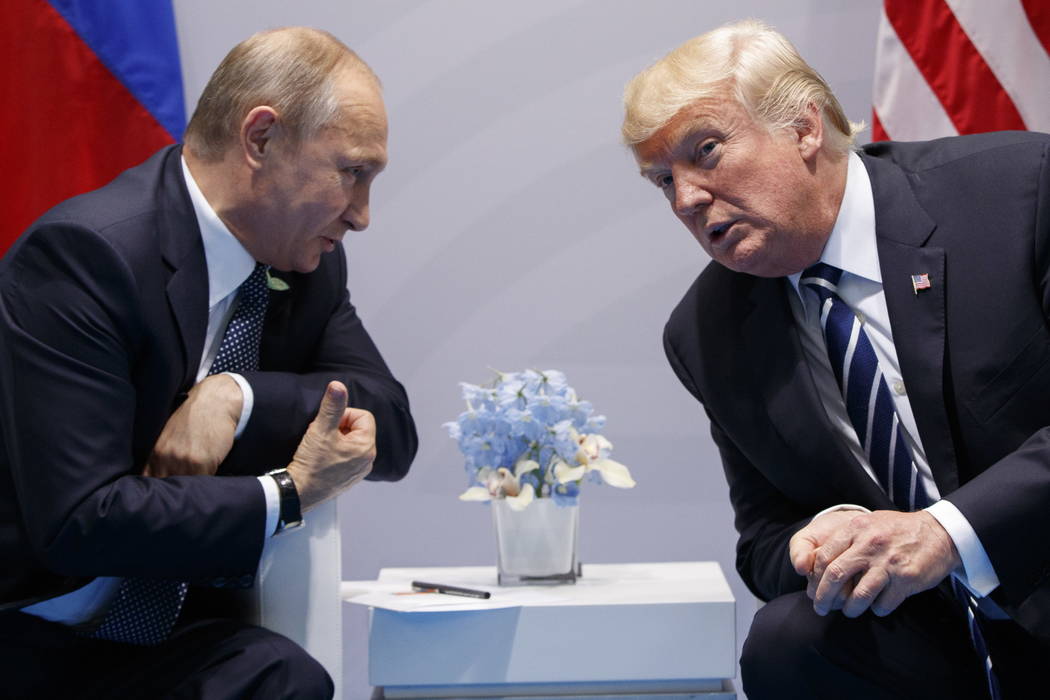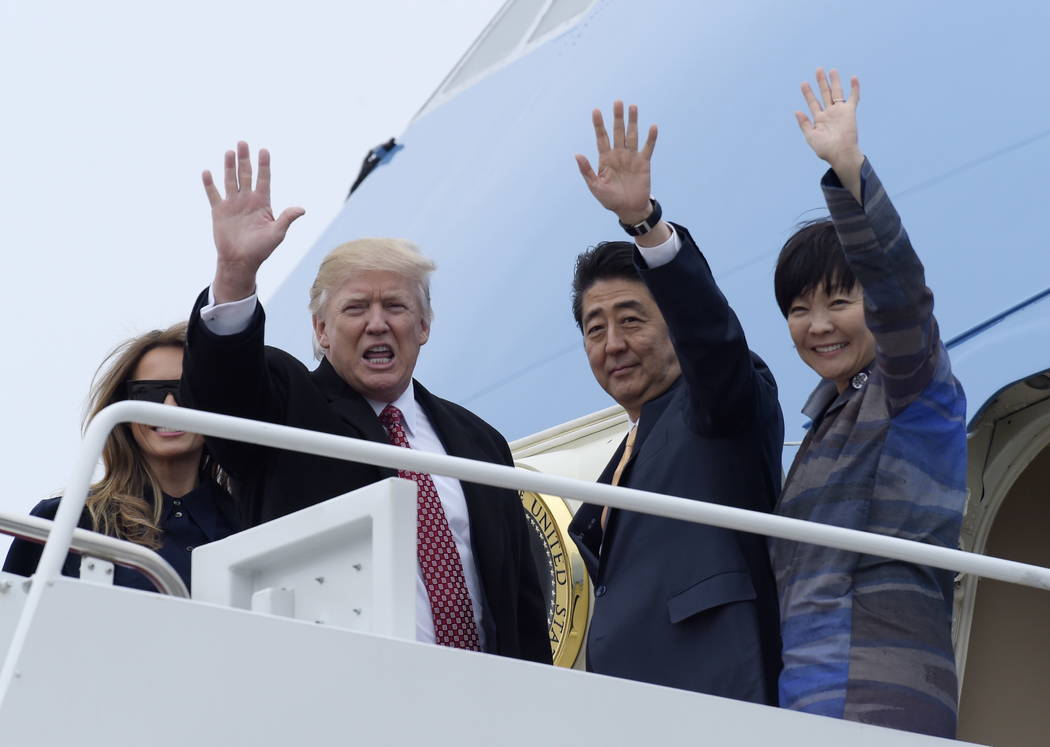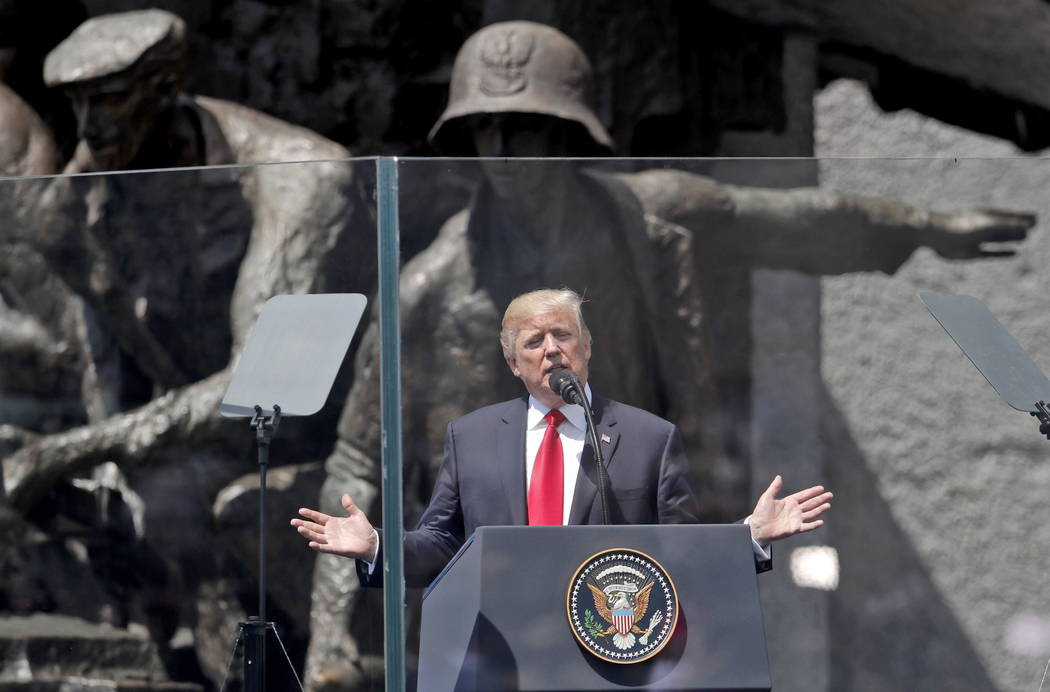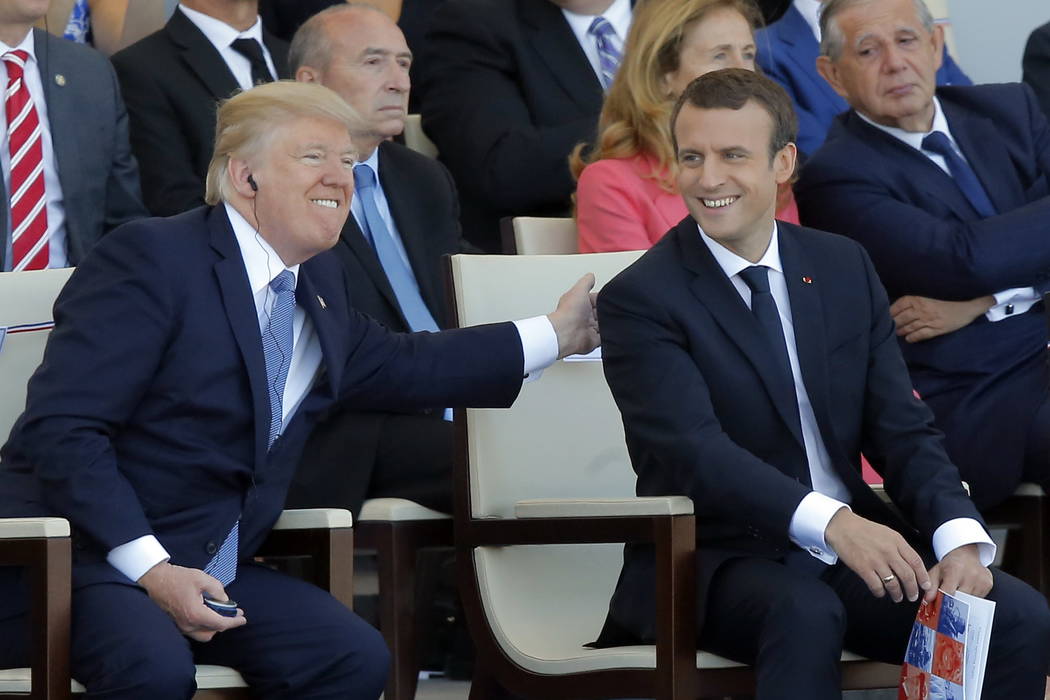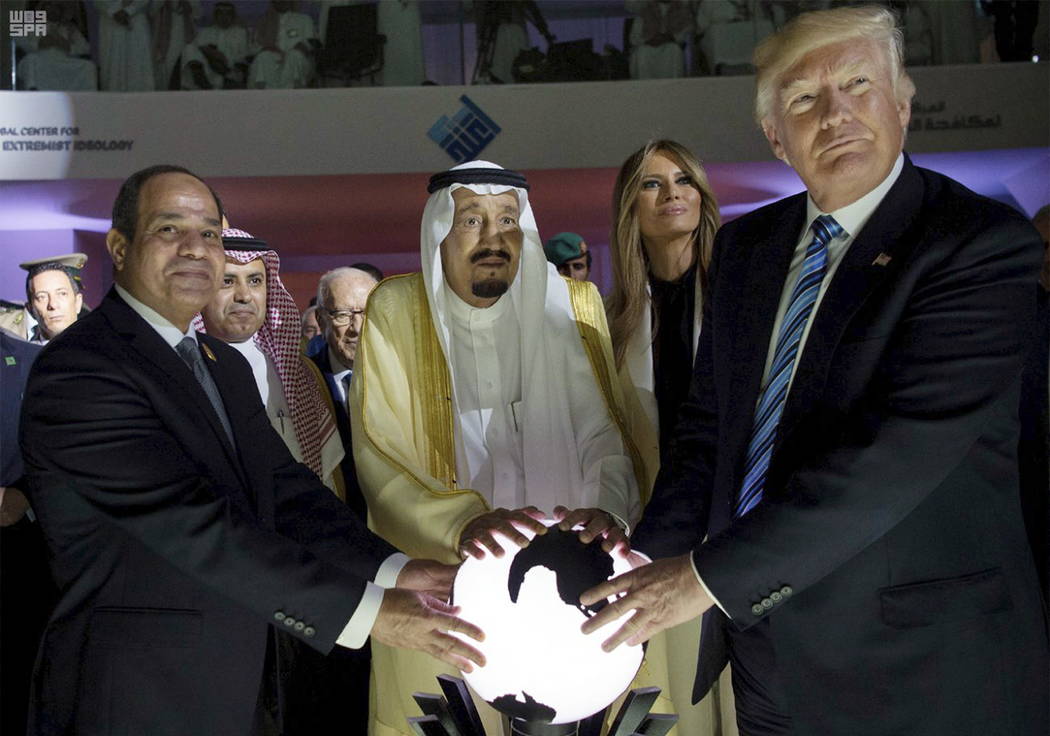In his first year, Trump changes the rules for diplomacy and trade
This is the first installment in a three-part series examining President Donald Trump’s first year in office.
WASHINGTON — When President Donald Trump recognized Jerusalem as the capital of Israel on Dec. 6 and announced his plan to move the U.S. embassy from Tel Aviv to Jerusalem, the foreign policy community shuddered.
Yes, Congress had voted to move the embassy to the ancient city regularly since 1995. Yes, past presidents had promised to do so the same thing when they campaigned for the Oval Office. But unlike Presidents Bill Clinton and George W. Bush, Trump actually made good on his Jerusalem pledge after he won office.
As with many other foreign policy areas, the unorthodox executive decided that the status quo wasn’t working, so he would be the disruptor who changes how diplomacy and trade are done.
He would lecture allies at diplomatic summits to bend them to his will. He would not be afraid to propose protectionist trade policies. He would not let the usual foreign policies dictate what he said. And he wouldn’t be afraid to challenge international institutions.
And as is often the case in the realm of global gamesmanship, it may take years before the world learns whether a president’s approach truly served American interests.
“No, I don’t think the world is a safer place,” opined Ellen Tauscher, undersecretary of state under President Barack Obama. “I think our prestige has taken a huge black eye.”
Tauscher sees a president who has rejected diplomatic norms, and replaced them with chaos and needless Twitter feuds.
But Heritage Foundation foreign policy fellow Nile Gardiner sees a safer world with a president who is tougher on Iran and North Korea and cold on appeasement policies.
The White House calls the Trump approach to global affairs “principled realism.”
Gardiner cited the Jerusalem announcement as an example. “It was a bold, gutsy move,” he said. “It underscored the fact that this administration is willing to implement the will of Congress,” and it showed a president “who does deliver on his campaign promises.”
Bombs and chocolate cake
The new president has had a busy year.
Trump not only ordered a bombing in Syria to protest dictator Bashar al-Assad’s use of chemical weapons against his own people, but he also told Chinese President Xi Jinping about the attack over “the most beautiful piece of chocolate cake you’ve ever seen.”
During four foreign trips, Air Force One carried Trump and staff across the globe, starting in Saudi Arabia in May and ending in Manila in November.
Trump has seemed in his element when mixing with other world leaders. Sword in hand, he danced the “ardah” — a traditional Saudi men’s “war dance” — in Riyadh. In Japan, Trump golfed with Prime Minister Shinzo Abe. He observed the Bastille Day parade with French President Emmanuel Macron and emerged determined to put on an American parade to outdo Paris. He gave a stump-style speech to enthusiastic fans in Warsaw’s Krasinski Square.
Trump’s “bromance” with Russian President Vladimir Putin led to their first face-to-face encounter during a Group of 20 summit in Hamburg in July. The two were supposed to talk for 30 minutes, but the meeting — also attended by Secretary of State Rex Tillerson, Foreign Minister Sergey Lavrov and dual translators — lasted for more than two hours and ended with a cease-fire agreement over Syria.
The sit-down also produced dueling versions over of what Trump said. Tillerson told reporters that Trump pressed Putin more than once on Russian interference in America’s 2016 election. Lavrov contended that Trump accepted Putin’s denials.
If Trump has seemed oddly chummy with Putin, he has not been afraid to challenge Western European leaders. Or, as Heritage’s Gardiner put it, “President Trump says things on European soil that other presidents are unwilling to say.”
When Trump addressed a NATO summit in Brussels in May, he hectored member nations for not paying their “fair share” — two percent of their GDP — on defense.
NATO partners were flummoxed, said Tauscher, that at a ceremony celebrating NATO’s shared commitment to fight international terrorism, Trump treated NATO leaders like Trump country club members who didn’t pay their dues.
When Trump visited the United Nations in July, he likewise lectured the august body for spending too much money and not living up to its potential. In his maiden address, Trump also warned that Washington may have “to totally destroy North Korea.”
Then last month Trump put a chill on America’s “special relationship” with the United Kingdom when he retweeted videos posted by an extremist hate group. British Prime Minister Theresa May said it was “the wrong thing to do” — to which Trump responded on Twitter: “don’t focus on me, focus on the destructive Radical Islamic Terrorism that is taking place within the United Kingdom.”
The exchange led members of Parliament to debate whether to cancel a planned state visit by the American president.
A different path
In the Middle East, Trump deliberately flipped the approach adopted by Obama, who chose to work on a 2015 nuclear deal with Iran despite Tehran’s atrocious human rights record and its sponsorship of violence across the region.
At the same time that Obama winked at Iran, he pushed Egypt to adopt a democratic form of government — and hence, into the arms of the Muslim Brotherhood during the so-called Arab Spring.
At the Arab Islamic American summit in Riyadh, Trump declared a new tone. “We are not here to lecture. We are not here to tell other people how to live, what to do, who to be, or how to worship,” he said. “Instead, we are here to offer partnership, based on shared interests and values, to pursue a better future for us all.”
In that spirit, Trump welcomed Egyptian President Abdel Fattah el-Sissi to the White House — a gesture Obama avoided to make clear his opposition to el-Sissi’s path to power.
And while Trump did not carry through on his campaign pledge to rip up the Iran deal, he has pressed Congress to toughen the deal. When Air Force One took off from Riyadh in May, it was clear this White House sides with the Saudi-led Sunni alliance against Iran.
As the newly released National Security Strategy explained it, “We have renewed our friendships in the Middle East and partnered with regional leaders to help drive out terrorists and extremists, cut off their financing, and discredit their wicked ideology.”
Promises, promises
As a candidate, Trump vowed to build a “big, beautiful” border wall with Mexico. While he has failed to squeeze funding from Congress for a wall, his administration was able to oversee the construction of eight wall prototypes designed to block illegal immigration and keep manufacturing jobs in America.
Trump also promised to withdraw from the Trans-Pacific Partnership trade agreement on his first day in office, and he followed through.
Economic Policy Institute senior economist Rob Scott described Trump’s action as “a good move” because the TPP would have increased the U.S. manufacturing trade deficit.
But critics on both sides of TPP have argued that Trump opened a leadership void in the Pacific rim that ceded power and authority to Beijing.
Tauscher sees China building roads and using its money to develop Africa and Asia. She said China’s also at the table in Europe – and vying to be the global trade giant.
Scott doesn’t see a lot of manufacturing jobs returning to the United States from China. And he believes that the GOP tax cut plan passed this month could cost American jobs as it fosters uncertainty.
Scott also said he has not been impressed with Trump’s foreign trips because “I do not think they have led to substantive” gains. Too often, Trump talks about his ventures abroad as an opportunity that enabled fellow big shots to flatter him.
And that leads back to Putin. A number of Democrats believe that Trump owes his job to Russian mischief and is transfixed by Putin’s campaign of Trump flattery.
“In the intelligence business,” former CIA chief Michael Morell wrote in the New York Times, “we would say that Mr. Putin had recruited Mr. Trump as an unwitting agent of the Russian Federation.”
Trump only feeds that perception when he tells reporters about how much Putin has praised him.
Heritage’s
Gardiner says to ignore Trump’s rhetoric and watch what he does. For example, Gardiner noted the administration’s recent decision to authorize the sale of defensive weapons to the Ukraine — which Obama failed to do.
When Trump isn’t gushing about Putin and other strong men, he often can be found on Twitter abusing his detractors, and making America’s allies nervous. Many especially wonder if Trump’s salvos against North Korean strongman Kim Jong Un — whom Trump likes to belittle as “rocket man” — will lead to, well, nuclear war.
“The administration is more aggressive in terms of both Iran and North Korea,” Gardiner offered. “You have to be very forceful in dealing with both of those countries.”
For Tauscher and other critics, however, there is no separating the Trump they have come to disrespect with the player on the world stage who believes he has bulked up America’s image abroad.
“Everything is personal to him,” said
Tauscher , who believes foreign operatives have figured out “you can manipulate him up and down the spectrum by just the way you treat him.”
Trump clearly sees himself as different from your standard elected official and your average Republican. As he said when he announced his candidacy in June 2015, he likes Republican politicians, but “they don’t talk jobs and they don’t talk China. When was the last time you heard China is killing us?”
The question is: Will saying China is killing us work?
Contact Debra J. Saunders at dsaunders@reviewjournal.com or 202-662-73891. Follow @DebraJSaunders on Twitter.



